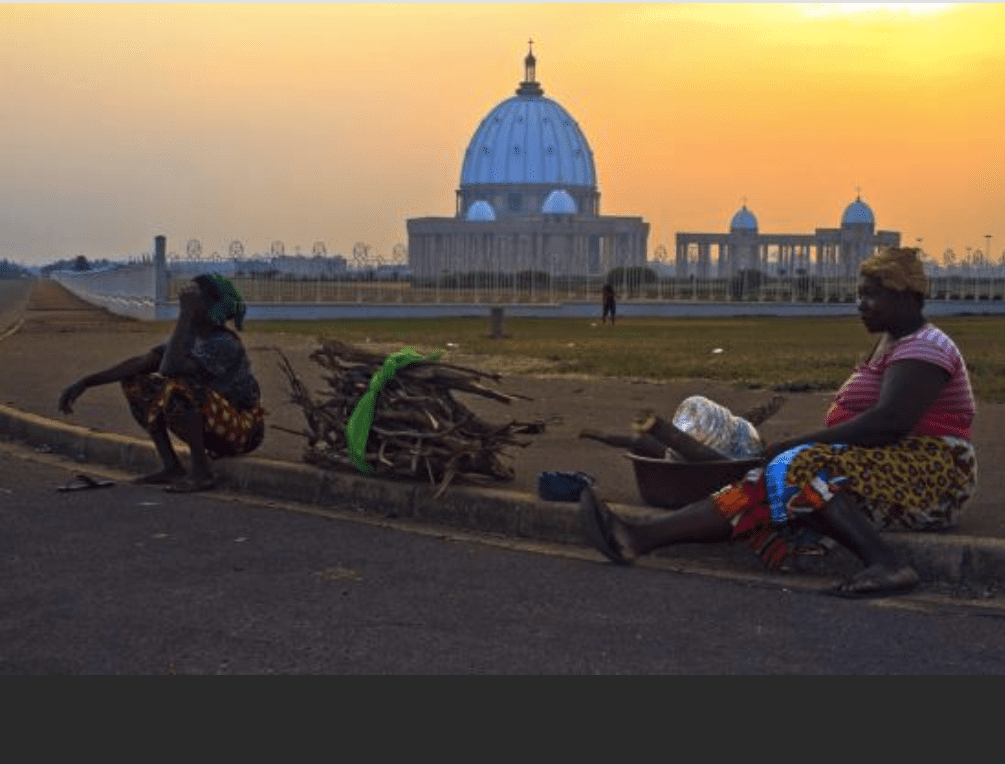Back in 2001, the Congregation for the Evangelization of Peoples – by the way, everybody in Rome still calls it by its old name, “Propaganda Fidei” – put out a document which, by Vatican standards anyway, was remarkably on-point and practical.
Propaganda Fidei oversees the life of the Church in so-called “mission territories,” mostly in the developing world, and the text was called, “Instruction on the Sending Abroad and Sojourn of Diocesan Priests from Mission Territories.”
Its main concern was the growing phenomenon of priests from places such as Africa and Asia going to Europe or North America, often allegedly to “study,” and then basically never going home – floating around here or there, usually without any specific assignment or supervision, normally because they’ve become accustomed to first world standards of living and don’t want to go back.
Cardinal Josef Tomko, a tell-it-like-it-is Slovakian, was running Propaganda Fidei at the time, and he described these rootless priests as the leading edge of a bigger problem, one also including priests whose service abroad is completely legitimate.
India, Tomko said, doesn’t have enough priests to take care of its 17 million Catholics, yet at that time there were 39 priests from India working in one Italian diocese alone. Overall, Tomko claimed, there were 1,800 foreign priests in Italy, with more than 800 working in direct pastoral care.
“Many new dioceses could be created in mission territories with such a number of diocesan priests!” Tomko complained.
Some bishops from the global south actually have long felt these movements are the latest chapter in a long history of colonial plunder. Cardinal John Onaiyekan of Abuja, Nigeria, is among them.
“What we don’t want is to get into a Gastarbeiter situation, where a European priest feels overwhelmed having to say three Masses on Sunday, and so he wants a black man to say them,” Onaiyekan said in a 2006 interview. “Surely this is not where the Church wants to go, getting poor people to do jobs that the rich don’t want to do, as today happens in other walks of life.”
All this comes to mind in light of a striking speech delivered by Bishop Ignace Bessi Dogbo of Katiola in Ivory Coast, president of the country’s bishops’ conference, who addressed the bishops’ general assembly on May 22.
Judging by the tenor of it, not much has changed in the 17 years since the Vatican document came out.
“The bishops are increasingly challenged by the phenomenon of priests who are ‘without ties,’ pilgrims in the dioceses of the old Christendom in the West, in the service of who knows what mission,” Dogbo said.
“It’s a situation that damages, as if there were still need of it, the image of the Ivorian priest,” he said.
“We need to launch vigorous action to stem this tide, which can’t be understood any other way than as a disease of clergy and religious,” Dogbo said.
Dogbo suggested turning things around is important not simply from an “all hands on deck” point of view, but also because clergy without support systems or oversight often can get into trouble.
“It’s not surprising that this ruinous tide toward a supposed pastoral ‘Eldorado’ is connected with the environment of immorality we hear about in the media, letting us see the depth of human weakness, even among priests and people in consecrated life,” he said.
In response, Dogbo said, the country’s bishops are working with the “Fraternal Union of Ivorian Clergy” to organize an extraordinary conference “on the life and ministry of priests in the Ivorian context.”
“For the bishops and the presbyterate of the country, it’s clear that neither the killings perpetrated on some [priests] nor the backsliding of certain others can extinguish the joy of the mission ad intra and ad extra,” Dogbo said.
Here’s the interesting point: Back in 2001, the arguments made by people concerned about this north-south migration of priests were rooted in two basic considerations.
- Distribution of resources: Two-thirds of the Catholic people in the world live in the southern hemisphere, but two-thirds of the Church’s priests are in the north. It doesn’t take a Ph.D. in systems analysis or business management to realize something’s probably off there, and this migration is making things worse.
- Justice: Often, bishops from the developing world release priests for study or service abroad on the theory they’ll send some badly needed money home, or that the receiving diocese will cough up some support for the sending one. One could argue the Church in the West is plugging its gaps in vocations by “importing” priests from the developing world, even exploiting ones who really aren’t supposed to be there.
In both cases, cracking down on clergy doing God knows what outside their diocese, without real authorization, has struck many people as a good place to start.
Obviously, the fact that the tide has not been turned over the arc of 17 years suggests that, whatever merit those arguments may have, they didn’t do the trick.
Now, however, Dogbo is offering a new cause for alarm: Priests running around on their own, without real ties to anyone, are at greater risk of going off the rails, opening the door to the sort of scandals that have been such a cancer for the Church in recent decades.
It’s too early to tell if that argument will succeed where others have failed to spark a real conversation about what used to be called the clerici vagante, or “vagabond clergy,” but it certainly will be interesting to find out.














